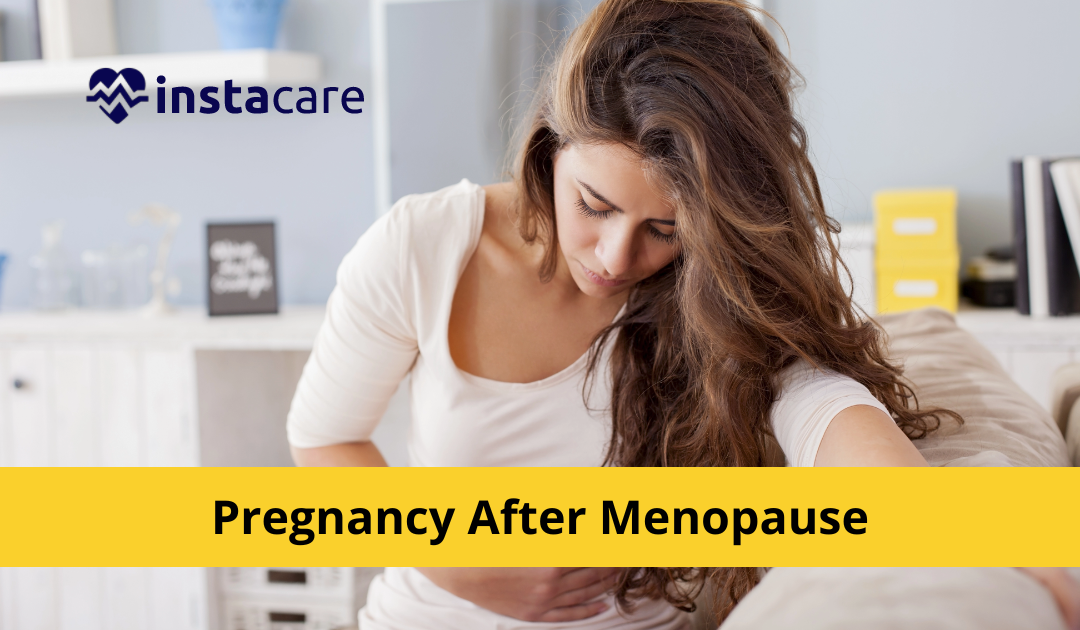Is it menopause, perimenopause, pregnancy, or also something else if I get night sweats, hot flashes, mood swings, changes in my skin and body, spotting, irregular menstrual periods, or no menstrual periods at all? We begin speculating about what might happen when our bodies start to alter or when we experience unusual symptoms for reasons we can't fully explain.
If you're in your late 30s or 40s and beginning to see physical changes, it may be a sign that also your body is preparing for menopause. The short answer is indeed yes, but the chances are minimal if you're nearing or in your 40s and also wondering if you can still get pregnant.
The short answer to whether it's still possible to become pregnant after menopause is that it's implausible but not impossible. All of these responses are related to female fertility, which differs significantly from male fertility. Women typically don't become pregnant successfully after their mid-40s, even though men can still produce viable sperm into their 60s.
Signs Of Pregnancy After Menopause
Cycles Of Menstruation Changing
Hormonal alterations induce changes in the menstrual cycle in women also who are pregnant or in the perimenopausal stage. Missed periods indicate pregnancy, whereas irregular cycles could indicate the beginning of menopause.
Changes in blood flow, minor spotting, and longer or shorter periods are indications of irregular menstruation. It's crucial to keep in mind that irregular periods could be a sign of another illness. Discuss any worries you may have with your doctors.
Fatigue And Issues Sleeping
Both pregnancy and perimenopause can cause fatigue and sleep issues. High amounts of progesterone during pregnancy contribute to exhaustion and may make you feel sleepy. You are more likely to have problems falling asleep and also staying asleep during perimenopause, which can make you feel more exhausted than usual.
View More: What Is Menopause? Causes Symptoms and Treatments
Mood Swings
Hormonal changes bring on mood swings during pregnancy and perimenopause. Your mood swings during pregnancy may make you feel unusually sentimental and teary. These alterations in perimenopause may manifest as irritation, moodiness, or a higher risk of depression.
Headaches
Headaches accompany both pregnancy and perimenopause. Hormonal changes in both situations bring on headaches. Headaches can result from estrogen depletion during menopause. An increase in hormones during pregnancy may be the reason for more headaches.
Gaining Weight
During pregnancy, weight increase begins gradually. Your belly expands as your baby does. It's advised that pregnant women gain no more than 35 pounds, though your diet and other factors could result in a weight increase beyond that.
Your metabolism slows down during menopause, making it more challenging to maintain a healthy weight. Additionally, hormonal changes may contribute to weight increase in your midsection.
Issues With Urination
During pregnancy, you could notice that you urinate more frequently. The increased blood volume makes your kidneys process more fluids, which then collect in your bladder.
However, the decreased tissue tone that occurs after menopause could make you unable to regulate your bladder. Additionally, incontinence can happen when pregnant.
Alterations To Sex Drive
Hormonal changes throughout menopause and pregnancy might impact your sex drive. During menopause, reduced sex drive is more prevalent. Your libido may rise or fall during pregnancy.
Cramps And Bloating
Early on during your pregnancy, your uterus may spasm. Hormone changes might also result in bloating.
In perimenopause, cramps and bloating are also possible. Cramps during perimenopause may indicate the beginning of your period.
View More: How To Get Your Periods Overnight
Night Sweats And Hot Flashes
Although night sweats and hot flashes are frequently linked to menopause, they can also be the beginnings of pregnancy.
You'll experience a brief burst of heat during a hot flash, which may make you sweat and cause your face to flush and turn red. Additionally, you can sweat excessively while trying to sleep, which might cause nighttime awakenings and tiredness.
Conclusion
Speak with a provider if you are pregnant during perimenopause, hope to become pregnant during perimenopause, or become pregnant after menopause. You can be ready to make the most excellent choice by becoming informed about your options and conscious of your medical requirements and objectives.












